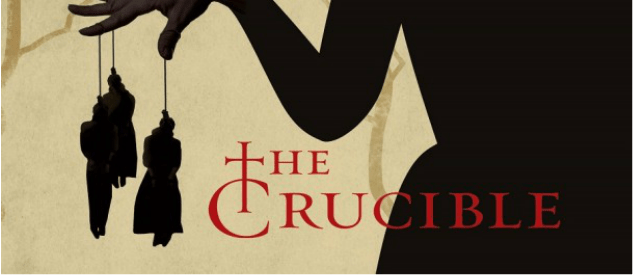Another CLEAR Education blog post!
In this post, we will be diving into Arthur Miller's play, 'The Crucible' and how it extrapolates upon mass hysteria which ultimately affects an individual’s morals, to illustrate the anxieties of McCarthyism era.
Overview and Context
To have a strong understanding of The Crucible, it is important to first understand how Arthur Miller’s own context of the ‘Red Scare’ and McCarthyism relates to and is paralleled within the historical context of the Salem Witch Trials in the play, allowing for a universal understanding of the human experience. In this post, we will be particularly focusing on how human qualities and emotions arise out of collective human experiences. By using the allegory of the witch trials to reflect the McCarthy trials, Miller focuses on how mass hysteria ultimately affects an individual’s morals, using the competing values of integrity and reputation to illustrate the anxieties of McCarthyism era.
Quotes and Analysis
Drawing upon his own context of the McCarthy trials resulting from ‘The Red Scare,’ Miller establishes the irrationality of mob mentality, the personification within:
“I have seen too many frightful proofs in court—the Devil is alive in Salem, and we dare not quail to follow wherever the accusing finger points!”,
revealing how the hysteria of the Puritan society permeates Salem’s legal system. Furthermore, the anxieties of individuals within a conformist society is revealed in Reverend Hale’s biblical language, conveying how fear of accusations and arrests render individuals powerless and complacent.
Miller contrasts this complacent attitude with the characterisation of John Proctor, revealing how individual redemption can be found by challenging a hysterical society. Proctor, who maintains his innocence, recognises the ‘filthy face’ in Salem, the individuals who value their reputation over their integrity:
‘A fire, a fire is burning! I hear the boot of Lucifer, I see his filthy face… for them that quail to bring men out of ignorance, as I have quailed, and as you quail now when you know in all your black hearts that this be fraud.’
The repetition conveys how Proctor understands that he himself was culpable in this complacent attitude as well as those in positions of power, Miller condemning both the perpetrators of hysteria, and the by-standers who value their safety over their integrity, paralleling his own contemporary context. Proctor, by admitting his own culpability and maintaining his innocence, though it means a death-sentence for him, is ultimately able to forgive himself and achieve redemption in a collective society devoid of rationality.
Be sure to always be utilising your ideas and the key terms of the question throughout the paragraph in order to answer and engage with the question!
*Please note that while this information is a great starting point for these texts, relying solely on the information in this post will not be enough to get a result in the top bands.

